
Itching and many accompanying troubles can be caused by a huge amount reasons. To accurately establish the source, it is best, of course, to visit a doctor, but this is where the problem arises - which specialist should I make an appointment with?! Or go to everyone in a row - an inspection is never superfluous! Let's figure out what the reasons are and which doctor should be visited.
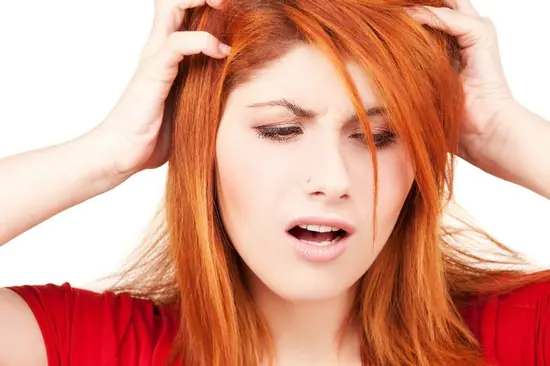
For severe, persistent itching of the scalp Necessarily consult a doctor! Don't delay! The sooner you contact, the less consequences there will be!
Probable Causes
- Seborrhea, dandruff
Improper functioning of the sebaceous glands leads to major hair problems. One of the very unpleasant ones is dandruff (seborrhea), accompanied by unbearable itching and damage to the skin. And also shoulders and backs covered with white scales. It is these scales that are the source of itching; they are the ones that irritate the skin.
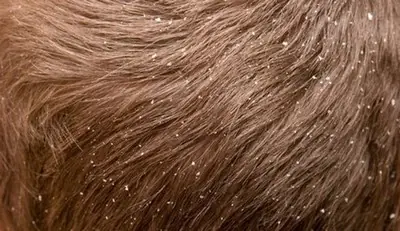
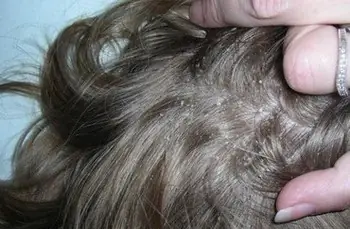
In mild cases, dandruff can be easily treated on its own at home. It is better to treat more complex cases together with a trichologist, and approach this comprehensively and tune in to the duration of the process.
- Dry scalp
Again, improper functioning of the sebaceous glands and some other reasons lead to dry hair and scalp. The glands are actively trying to relieve dryness and protect weakened skin from the negative effects of the environment and thereby cover the entire surface with a layer of sebum. The hair begins to get dirty quickly, a lot of dirt sticks, bacteria and microbes develop strongly. You may mistakenly suspect that you have oily skin and oily hair type. Frequently washing your hair dries out your skin even more, making cracks and scratches itchy. After washing, everything becomes fluffy and electrified, hairs split and break off.
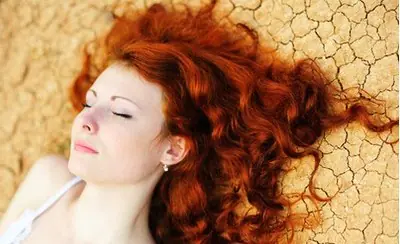
Moisturizing masks, replenishing vitamins and microelements in the body, proper and healthy nutrition, following the rules of washing and drying, and protecting curls from the sun, wind, and frost can cope well with this problem.
- Fungal infection
These are serious diseases that require mandatory treatment. In addition to constant frequency, plaques (lichen) also appear on the skin, which look very repulsive. It is best to undergo a course of treatment in a medical facility under the supervision of a dermatologist, but if for some reason this is not possible, then try to relieve symptoms with tea tree oil wraps and special antifungal shampoos.
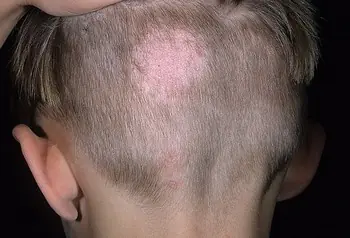
- Parasites (lice, mites...)
Another very serious lesion, which also requires mandatory and immediate treatment (you must visit a dermatologist). Most often these are lice. A louse can jump over anywhere, especially where there are large crowds of people or large groups of employees. You can detect it under a magnifying glass by carefully examining the scalp (it’s better if a doctor does this). It is not possible to detect a tick-borne infection at home.
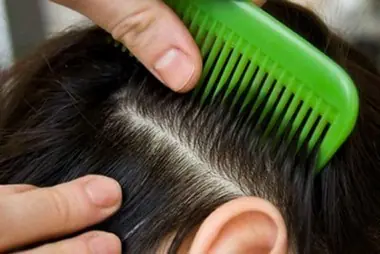
Inspection for lice
Treatment for head lice is quite simple and does not take long. Special shampoos and some folk remedies will do the trick.
Perhaps one of the most common sources of skin itching, and all because recently an incredible number of new allergic reactions have appeared. The main ones are reactions to food. Also, many today are faced with allergies to hair care products (shampoos, balms, masks, styling products...) and decorative cosmetics. It is usually accompanied by rashes, redness, itching, and sometimes swelling.
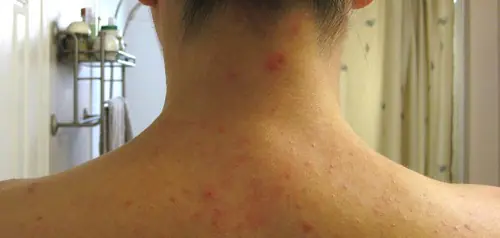
Allergies can also occur when changing your usual hair care product. If returning to the old remedy does not solve the allergy problem, then you should contact a trichologist.
The solution to the problem is to find the allergen and, of course, eliminate it. The best place to do this is at an allergist's office.
- Allergy to paint
This also happens quite often, especially if the artist used low-quality paint or paint containing ammonia or hydrogen peroxide. There is only one way out: be sure to control what exactly the artist paints you with and choose ammonia-free paints or tinted shampoos for coloring. In addition, it is advisable to test for allergic reactions before the procedures.
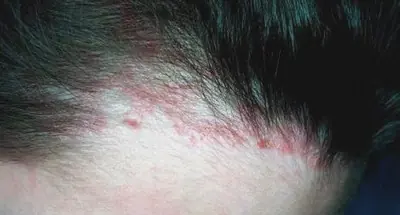
- Allergy to powders
Washing powders and fabric softeners contain many different chemical components. Any of them can cause skin irritation, and, accordingly, allergies and itching.
The source of many different problems with the body is nervous tension, stress, depression, and neuroses. Hair and scalp are also affected. Stress can cause a change in hair type, disruption of the sebaceous glands, spasms of blood vessels, and problems with blood microcirculation. Against this background, metabolism suffers greatly and skin irritation occurs.
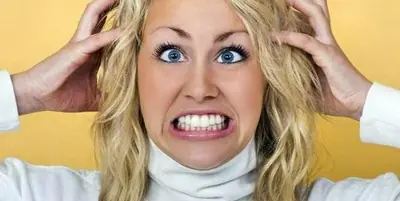
To relieve this irritation, first of all, you need to eliminate stressful situations and calm your nerves, take a course of sedatives (prescribed by a neurologist upon treatment), and massage the scalp and cervical spine.
- Poor nutrition
Excessive consumption of sweets, spicy foods, coffee, smoked foods, canned food, etc. These are not very healthy foods and overeating them inevitably affects the skin: dermatitis, eczema, acne, rashes. These skin manifestations are always accompanied by itching and severe scratching of the rash. Coping with this problem is quite simple: eliminate “junk” foods for a while, drink more plain water, consume lean foods with a small amount of spices. Itching and rashes will go away quickly!
- Wrong headdress
Tight and synthetic headgear often causes discomfort on the head. The debate makes the situation even worse. You want to scratch your head all at once and as quickly as possible. There is only one way out - to immediately change the headdress to a more pleasant one, made of natural material, and in addition, different hats should be worn at a certain temperature (hair care in winter) and try not to overheat the scalp, as well as not to overcool.
In addition to these main reasons, there are also secondary ones. These include:
- disturbances in blood circulation;
- gastrointestinal diseases;
- passive lifestyle;
- frequent use of hair dryers and curling irons. ;
- overvoltage .
Of course, there are many reasons and it would take a very long time to describe each one. If your reason is not among the main ones, then it’s worth looking with a specialist for more rare ones. But it is imperative to find the reason why the scalp itches, since this can be a symptom of a serious illness, and going to the hairdresser becomes problematic.
The human condition is constantly influenced by many factors. Many people experience this phenomenon of constantly itching their head. The reasons for this phenomenon may be different. In any case, measures must be taken to eliminate this unpleasant symptom. Details are presented in the article.
Why does my head itch? The reasons may be related to the appearance of lice. But this happens only in advanced cases. Inflammation and irritation on the head is usually observed in young children who do not like water procedures, and unscrupulous parents do not bathe them. It is easy to detect traces of lice, because pests leave stains. Lice usually form where there is dandruff.
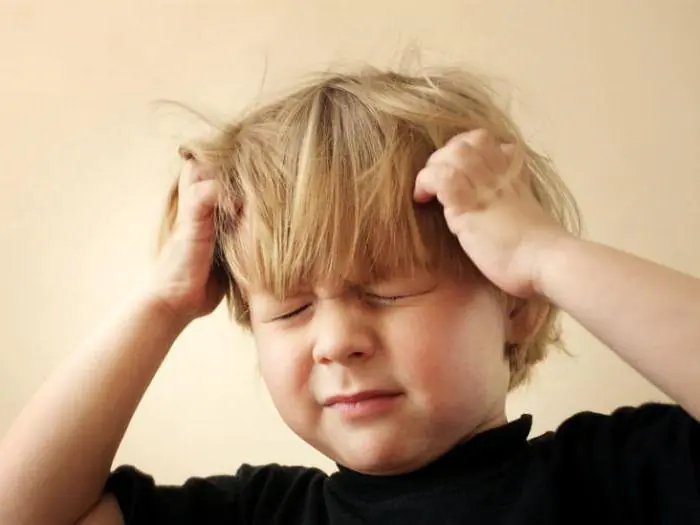
If a person takes care of hygiene, then the possibility of such a problem occurring is minimal. If you have any doubts about this, you should ask a loved one to examine your head for parasites. You can see them with your own eyes or with a magnifying glass.
Allergy
“Why does my head itch, it’s clean, right?” - you can often hear exactly this question from people. If itching occurs after washing your hair, then the shampoo is probably not suitable. In this case, you need to buy a pharmaceutical remedy against this symptom.
Often a person becomes allergic to certain components that are included in personal care products. Allergens include sodium and sulfate compounds. In this case, it is necessary to change the shampoo, otherwise, with an allergy, red spots may form on the head, and dandruff will be released in even greater quantities. Inflammation and dandruff appear when the scalp is very dry, and a person uses shampoo for oily hair.
Chemical damage
If your head itches, the reasons may lie in chemical damage. Usually this problem occurs among the fair sex after extensions and coloring. Itching occurs due to the influence of many chemical components on the skin and hair. In this case, it is necessary to determine which of the remedies causes the allergy. If it is detected, you should stop using it.
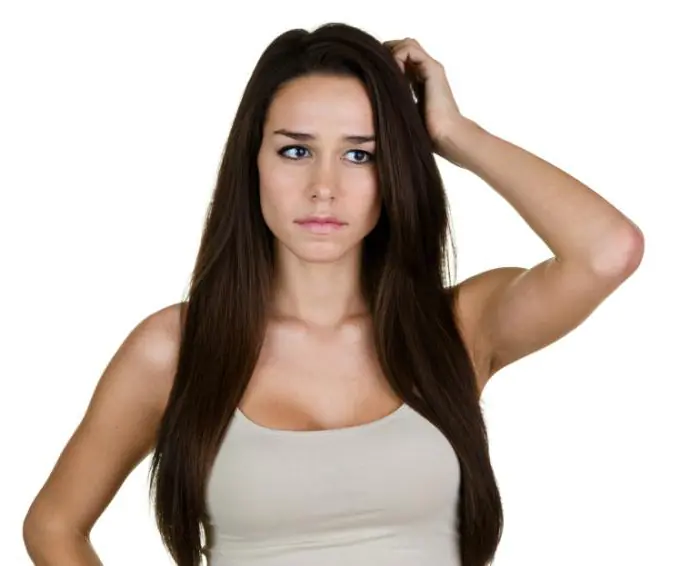
It is necessary to pay attention to the composition and compare it with other products used. Often allergies are caused by ordinary henna. After contact with the head, it negatively affects the epidermis. The allergen may be ammonia, which is an aggressive agent for the epithelium.
Switching to products from another company usually helps. Therefore, if shampoo makes your head itchy, you need to try a different wash. To get rid of unpleasant sensations, you need to use a soothing gel, lotion, or balm. Various herbal tinctures are suitable.
Disease
Constantly itchy head due to illness. Hair loss is associated with a deficiency of vitamins and microelements for hair and skin. The bulbs weaken, the strands become thinner and break, and then fall out.
Itching may appear due to a skin disease in the form of a fungus, ringworm. The disease can occur in people of any age and gender. Typically, sores appear as frequent spots on the skin. The affected area may not be the head. The disease can manifest itself throughout the body, especially in friction areas such as the knees or elbows. The spots turn white and peel, causing the person to feel severe itching. In this case, you should consult your doctor about treatment methods.
Seborrhea
If your head is constantly itching, the reason may lie in the presence of seborrhea. This disease occurs due to severe oily skin. Then dandruff appears in larger quantities. In addition, peeling is observed. It could be dermatitis or psoriasis. You should not treat the disease at home; it is better to consult a doctor immediately.
The causes of this phenomenon are constant stress and depression, poor nutrition, disruptions in the immune system or hormonal system. If your skin is sensitive, then even washing with hard water can cause this unpleasant symptom. The head also constantly itches due to a genetic factor, allergies or health problems.
Allergy to paint
Your head may itch from using low-quality paint or a composition containing ammonia or hydrogen peroxide. Therefore, it is important to control what the master will use for painting. Ammonia-free paints or tinted shampoos are more suitable. Before the procedure, it is necessary to perform an allergy test.
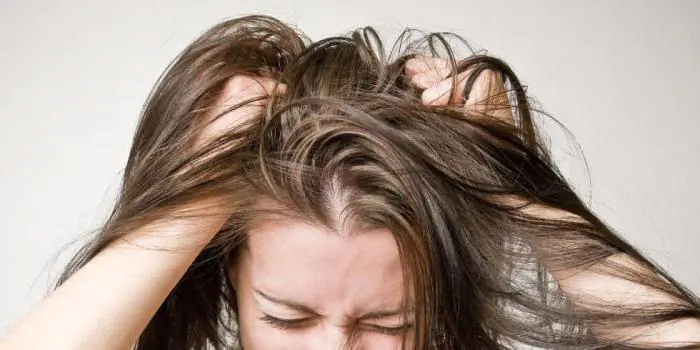
Poor nutrition
Itching may occur due to consumption of large quantities of sweet, spicy, smoked, canned food and coffee. Overeating these foods necessarily affects the skin, causing dermatitis, eczema, acne, and rashes.
With these skin manifestations, itching and scratching are observed in the areas of the rash. Therefore, it is necessary to exclude the consumption of junk food, it is necessary to consume more plain water, lean foods without spices. After this, the itching may go away on its own.
Inappropriate headgear
If it is tight or synthetic, then unpleasant sensations will definitely appear on the head. Debate only makes the situation worse. In this case, you need to replace the headdress with a pleasant one made of natural material. In addition, they must be worn at a certain temperature; the scalp should not be overheated or overcooled.
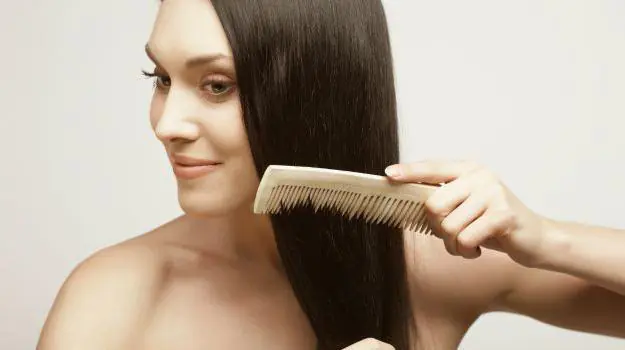
Itchy scalp can also occur due to:
- blood circulation disorders;
- gastrointestinal diseases;
- sedentary lifestyle;
- frequent use of a hair dryer, curling iron, overexertion.
From nerves
Can your head itch from nerves? Stress and hair are interconnected. Therefore, itching is likely to occur for this reason. During stress, changes are observed in the activity of the immune system, which begins to work actively. This activation can cause an attack on one’s own cells.
Because of this, in some systems there is an imbalance between protective and aggressive factors. Due to damage to the scalp tissue, irritation of the nerve endings that transmit a signal of damage to the brain is observed. The nervous system understands this as itchy skin. This damage to the hair follicles can lead to hair loss.
When is treatment required?
It is possible and necessary to eliminate dandruff, itching and other skin problems. You should consult a doctor if you notice:
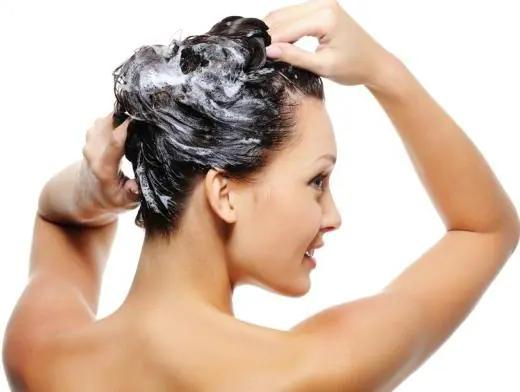
- scabies;
- excessive oily scalp;
- peeling of the skin;
- acne.
If your head itches in one place or in different places, you can use shampoos and medicated masks at home. Nowadays, various effective remedies against specific problems are sold.
How to restore hair?
Stress can significantly affect the condition of your hair. How should recovery be performed? The following recommendations will help in this matter:
- Elimination of factors that damage the scalp and hair. You should not use dyes, perms, use a hot hair dryer or straightener.
- Using methods that improve blood flow to the scalp. This applies to the laser comb and darsonval. The procedures activate blood flow and improve hair growth.
- Self-massage is useful.
- You should use a soft comb, preferably a wooden one with a low frequency of teeth.
Following these recommendations will help restore the amount of hair on your head faster.
Shampoos
If your scalp itches, what should you do? Special shampoos relieve this unpleasant symptom:
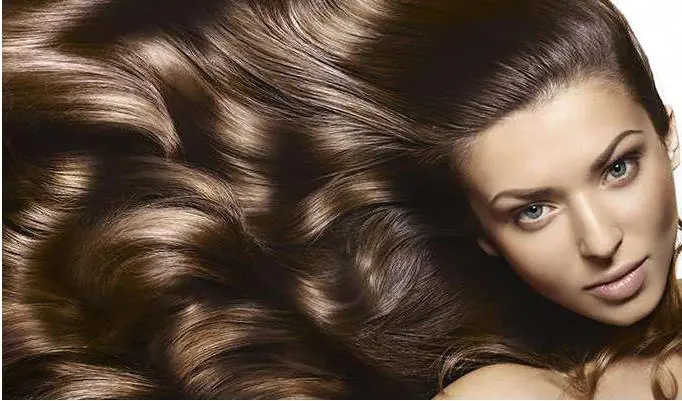
- For dandruff. But it can only be used if there is no allergy.
- From fungus and lichen. You should purchase products with zinc and climbazole.
- From itching and burning. Mousses and gels with salicylic acid and tar are suitable.
- From seborrhea. It is necessary to use medicinal masks and shampoos with tar, sulfur, antibacterial components and microelements.
- From irritation. It is better to choose shampoos with chamomile, oak bark and other medicinal herbs and plants.
Use of medications
If your head itches, treatment can be done with medications prescribed by your doctor. They should not be used arbitrarily. Usually, for dandruff and seborrheic dermatitis, vitamin complexes with vitamins A, E, B and preparations with fungi are prescribed.
If depression and stress constantly accompany you, you need to relax and calm down. In this case, you need to use antidepressants, for example "Novopassit" and tincture of motherwort and chamomile. If the hormonal system is normal, it is necessary to take the drug to restore the balance between male and female hormones.
Traditional medicine
It is not necessary to use medications, since there is traditional medicine. Its products can quickly improve the condition of the scalp and hair:
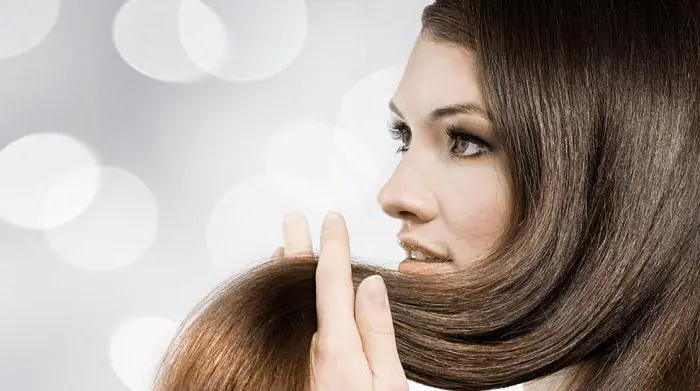
- Massage. The procedure restores blood circulation and eliminates unpleasant symptoms painlessly.
- Herbal decoctions. Oak bark, chamomile, and nettle are suitable for treatment. They can be used as a rinse after washing your hair.
- Garlic and onion juice. The acids and sulfur present eliminate flaking, dandruff, and itching. You will need garlic or onion juice, which must be mixed with lemon juice (in an amount of 1:1). You also need to add a little oil, preferably olive. Apply the finished mixture to damp strands and scalp for half an hour. Then everything should be washed off with warm water. If desired, add a few drops of lemon juice to the water.
- Apple mask. It will help you quickly get rid of itching. You will need a medium-sized apple, which must be grated and then applied to your hair and scalp. Then the heads should be wrapped in a warm towel for half an hour. Rinse off the product with warm water and shampoo. The procedures can be performed 2 times a week, which will provide excellent results.
- Onion peel. You will need 1 tbsp. this product, which must be placed in a saucepan and pour boiling water (1 liter). The finished mixture should be simmered over low heat for 1 hour. The decoction is used to remove itching for rinsing after shampoos. To achieve the best effect, you need to perform the procedures 2-3 times a week.
Prevention
It is better to prevent any disease than to treat it. To avoid itchy scalp, it is important to follow simple rules:
- Use high-quality shampoos, conditioners, and lotions that do not contain harmful allergens.
- It is important to use only your own styling tools - combs, hairpins, curling irons, stylers.
- In hairdressing salons and salons, it is necessary to monitor the processing of tools.
- It is necessary to adhere to an active lifestyle, eat right, and eliminate bad habits.
- It is important to remember that you should not self-medicate.
Thus, your head can itch due to various factors. However, there are many remedies to eliminate this unpleasant symptom. And if you follow the rules of prevention, you can prevent the occurrence of itching and other ailments of the scalp.
Content:
Causes of itching on the head in women
The reason most often lies in rather banal care - be it hair dyeing or a new shampoo. However, some itchy conditions (seborrheic dermatitis, for example) most often occur on oily skin, while others, such as contact dermatitis, occur on sensitive and dry skin. But most often the reason is much simpler:
Coloring
Women are experimenting with hair color to achieve fashionable shades this season, trying in any way to get rid of last season's out-of-fashion look. Others simply paint over their gray hair. In both cases, after such procedures, itching appears - a reaction that is especially common when dyeing at home. In salons, professionals apply dye evenly to the hair, but at home, a lot of dye gets on the scalp, resulting in irritation that burns and itches.
Dry skin
Often, when we moisturize our hair, we forget about our skin. And its dryness is the result of dehydration of the sebaceous glands that produce oil, causing the head to itch. The reason for this may be too frequent (or, conversely, infrequent) hair washing:
- Washing too often dries out the skin.
- When you wash too infrequently, sebum accumulates, causing flaking or itching.
Natural emollients are great for protecting natural moisture. Jojoba oil is similar in composition to sebum and is an excellent natural moisturizer.
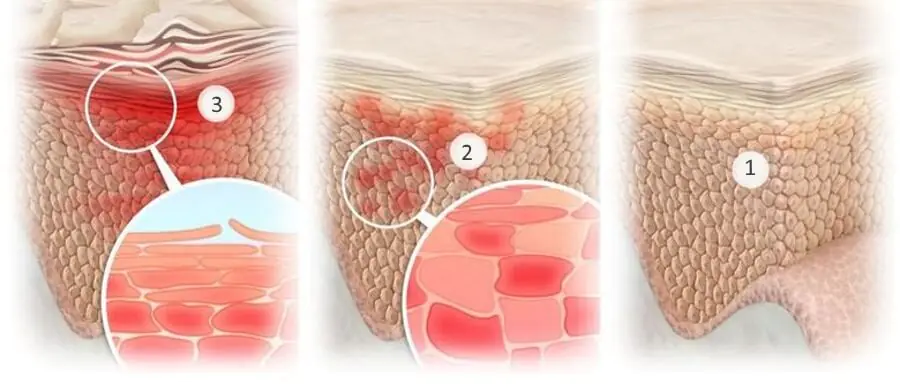
Styling products
If there is no dandruff, the cause of the itching may be hair styling products, which some women use in excess. Some gels, creams, balms, foams and sprays can accumulate on the scalp and form tiny itchy flakes.
Itching from stress
When the body is not under excessive stress, the nervous system and sensory organs function normally. Stress forces the body to activate a defensive reaction, and dissonance arises between the functioning of the nervous system and sensory organs. The result is a wide range of neural sensory symptoms. For example, a burning and itching sensation on the skin of the body, a very itchy head.
In this case, the itching itself is not dangerous and does not need to be treated. As stress subsides, this symptom decreases and eventually disappears. But reducing stress in the body often takes much longer than we think.
However, once the body has fully recovered from the overstimulation of the stress response, this burning and itching sensation on the skin will completely disappear.
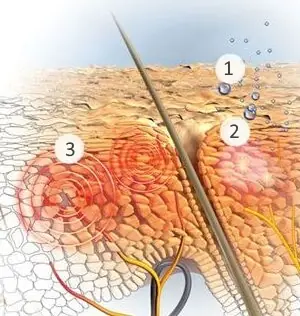
Diseases
In some cases, the problem is a symptom of a more serious disease that needs to be treated with medication, having first been examined by a doctor:
- If thick, scaly patches appear on your scalp that hurt, crack, and bleed, this is psoriasis, a chronic autoimmune disease.
- If, along with itching, hair falls out or breaks, there is liquid discharge that dries into a crust or even pus - this is most likely a staphylococcal infection.
Psoriasis
Psoriasis is a common disease accompanied by redness and peeling of the skin. Usually with psoriasis the scalar is much thicker and more pronounced than with dandruff. It often requires prescription medications to control it.
In this case, shampoos containing coal tar or salicylic acid with mineral oils are suitable to help soften and remove flakes. Dermatologists often prescribe topical steroid medications—liquids or foams that dry quickly and don't tend to weigh down the hair, and can be very helpful in combating dryness, itching, flaking, irritation, or rashes.
Inflammation of hair follicles
Inflammation of the hair follicles or bacterial infection of the scalp can also cause itching, often leading to serious scalp conditions. In this case, doctors advise using natural, organic products to avoid potential allergies to ingredients that could aggravate the problem.
Pediculosis
Diagnosis of lice is perhaps the simplest. It is not difficult to detect the presence of parasites. And it all starts with a rather characteristic itch. In this case, you can choose an over-the-counter medicated shampoo aimed at soothing the skin and getting rid of parasites.
It is best to consult a doctor, but if you decide to choose your own shampoo, then if you have sensitive skin or allergies, look for a remedy that is hypoallergenic and not too aggressive.
Keep in mind that head lice can transfer to bedding and other household items, so regular and thorough cleaning and washing is recommended to completely eradicate the problem and prevent re-infestation.
Scalp irritation, itching, flaking and redness: seborrhea
Dandruff is the main culprit of irritation, accompanied by itching, flaking and redness of the scalp. It is caused by many things, including overproduction of oil or other secretions, as well as overgrowth of yeast, which usually lives on the scalp and other hairy areas. The yeast overgrows and feeds on dead skin cells and oils, leading to itching and flaking.
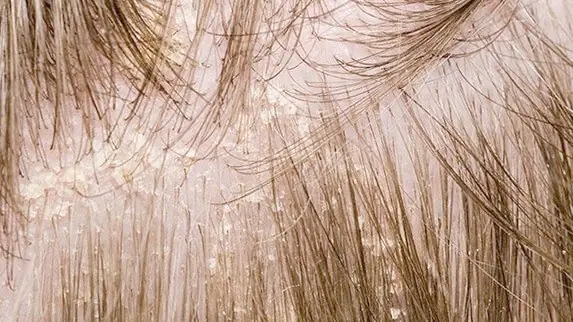
Seborrheic dermatitis is a common cause of dandruff. Skin oil blocks dead cells that stick together. Hence the scales along the entire length of the hair.
According to doctors, seborrheic dermatitis most often occurs in three phases of life:
- The first three months after birth, when the activity of the sebaceous glands is temporarily high due to the effects of prolonged hormones in the mother after birth.
- During puberty, when the activity of the sebaceous glands is high due to a new influx of hormones.
- In women after 50 years of age, this is when the activity of the sebaceous glands begins to decline.
In this case, dandruff is not curable, but there are several ways to control it. Products containing zinc pyrithione or selenium sulfide are often the most beneficial, such as Clear Complete Scalp Care anti-dandruff shampoo or the well-known Head & Shoulders.
Many women also report relief from symptoms after some home treatments. Doctors advise using coconut oil: rubbed into the scalp at night, it perfectly relieves itching and irritation.
To properly control dandruff, you need to eliminate the fungal component without causing more irritation and redness.
- For mild cases, it is best to use an over-the-counter shampoo that contains selenium, zinc pyrithione, or tea tree oil—they help control the yeast infection.
- If there is no itching, but only flaking and redness, try shampoo with salicylic acid.
- More persistent cases may require a prescription antifungal shampoo or cortisone foam, or, in particularly severe cases, antifungal tablets.
The right shampoo against itching and flaking of the scalp
Severe and persistent itching on the scalp is associated with several different problems, so choosing the best shampoo for treatment should begin with determining the cause. This will give you a starting point when shopping for the product you need. In addition, shampoos for the care of itchy skin are available in various formulas, so you need to carefully read the labels before purchasing, having first determined your skin type.
You or a medical professional can determine the cause of itching by looking at signs that are typical for a particular problem. However, if the itching is accompanied by other symptoms (severe peeling, the appearance of a crust on the head, bleeding, etc.), then it is better to immediately consult a doctor and not self-medicate.
Improper care
Since itching is sometimes associated with skin problems caused by improper care, it is recommended to choose a shampoo based on your hair type. Dry scalp should be treated with a shampoo that can moisturize the skin and hair. Replacing your regular shampoo with a moisturizing one can be a simple solution to relieve symptoms. A moisturizing conditioner can also help relieve itching caused by dry skin.
Insufficient hygiene
Poor hygiene can also lead to itching and if this is the cause, the solution is simple - regularly cleanse your hair and skin with a suitable shampoo to avoid itching caused by dirt and sebaceous gland secretions. If you have oily hair, you can use shampoo daily to maintain proper conditioning. Normal to dry hair usually requires washing every other day to maintain cleanliness.
The most serious causes are contact dermatitis and dandruff, also known as seborrheic dermatitis or simply seborrhea. Only a medical specialist can correctly diagnose and recommend the necessary treatment. In addition, head lice, dry scalp and poor hygiene can also lead to itching and even severe flaking of the skin.

Shampoos for seborrhea
If you know why your head itches very much, and the reason for this is dermatitis, special medicated shampoos will help you effectively cope with the problem. Severe cases of the worst may require the use of prescription shampoos, which can only be prescribed by a doctor. Choosing this type of shampoo for itchy skin is recommended only for the most advanced scalp problems:
- Shampoos containing selenium sulfide. This antifungal agent targets a specific yeast - Pityrosporum ovale. Reduces dandruff on the scalp and relieves irritation and itching. Shampoos on the market containing this ingredient include Selsun Blue and Head & Shoulders Clinical.
Shampoos containing pyrithione zinc, which has both antimicrobial and antifungal properties. Helps cope with inflammation and itching. Pharmacies sell over-the-counter medications that range in strength from 1 to 2 percent, such as Mountain Falls.
Shampoos containing salicylic acid. Salicylic acid has not been as well studied for seborrheic dermatitis as other ingredients. It is believed to be effective in combination with other treatments.
Salicylic acid is the active ingredient in Neutrogena T/Sal Therapeutic, a shampoo specifically formulated to combat the buildup of dead skin cells on the scalp.
Shampoos containing ketoconazole. This ingredient has been well studied for the treatment of dandruff and related conditions. It prevents the growth of fungus and has a mild anti-inflammatory effect. Present in Nizoral anti-dandruff shampoo.
Once the initial severe symptoms pass, seborrheic dermatitis can be managed by using ketoconazole shampoos only once or twice a week.
Ketoconazole is considered safe. Studies have not shown that it irritates the skin or causes other side effects.
Research has shown that coal tar is as effective as ketoconazole due to its ability to reduce fungal growth. Shampoos containing this ingredient include Neutrogena T/Gel Extra Strength, PsoriaTrax, and MG217.
The best diet for an itchy scalp
To combat dry skin in general (including on the head!), you need a balanced diet:
- Omega-3 fatty acids, found in fish, flax seeds and some nuts, are known to help the body fight dry skin (as well as fatigue, moodiness and poor memory). Introducing more foods with omega-3 fatty acids (or fish oil supplements) will also help against itchy dryness.
Zinc is another assistant in the restoration of skin tissue, including on the head. Seafood, meat, poultry, nuts and whole grains are excellent sources. Pharmacies also sell supplements.
Vitamin A is another key element in the overall health of human skin. It supports blood circulation and the immune system. Good sources of vitamin A include eggs, butter, and orange and yellow fruits and vegetables.
Vitamin B supports healthy skin cell production. Sources include meat, poultry, greens, beans and whole grains.
Vitamin C promotes collagen production in the skin, keeping skin hydrated and healthy. Present in abundance in spinach, Brussels sprouts, kiwi, strawberries and citrus fruits.
Of course, you can take a multivitamin to get the right dose of all these skin-preserving supplements. Drink plenty of water and de-stress (easier said than done?) and your skin will thank you.


